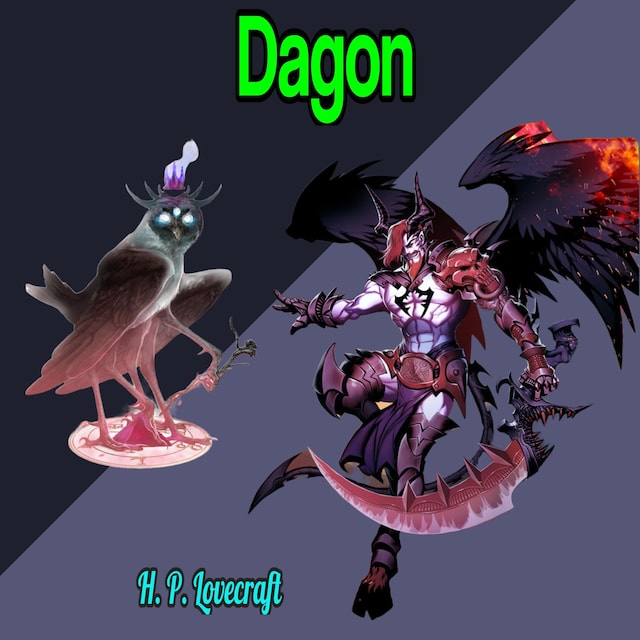
Dagon
Description of book
Dagon by H. P. Lovecraft Audiobook is a short story by American author H. P. Lovecraft. It was written in July 1917 and is one of the first stories that Lovecraft wrote as an adult. It was first published in the November 1919 edition of The Vagrant (issue #11). Dagon was later published in Weird Tales in October 1923. It is considered by many to be one of Lovecraft's most forward-looking stories.
Plot:
The story is the testament of a tortured, morphine-addicted man who relates an incident that occurred during his service as an officer during World War I. In the unnamed narrator's account, his cargo ship is captured by an Imperial German sea-raider in "one of the most open and least frequented parts of the broad Pacific".He escapes on a lifeboat and drifts aimlessly, south of the equator, until he eventually finds himself stranded on "a slimy expanse of hellish black mire which extended about [him] in monotonous undulations as far as [he] could see....
The region was putrid with the carcasses of decaying fish and less describable things which [he] saw protruding from the nasty mud of the unending plain." He theorizes that this area was formerly a portion of the ocean floor thrown to the surface by volcanic activity, "exposing regions which for innumerable millions of years had lain hidden under unfathomable watery depths."
After waiting three days for the seafloor to dry out sufficiently to walk on, he ventures out on foot to find the sea and possible rescue. After two days of walking, he reaches his goal, a hill which turns out to be a mound on the edge of an "immeasurable pit or canyon".Descending the slope, he sees a gigantic white stone object that he soon perceives to be a "well-shaped monolith whose massive bulk had known the workmanship and perhaps the worship of living and thinking creatures.
"The monolith, situated next to a channel of water in the bottom of the chasm, is covered in unfamiliar hieroglyphs "consisting for the most part of conventionalized aquatic symbols such as fishes, eels, octopuses, crustaceans, mollusks, whales, and the like."


